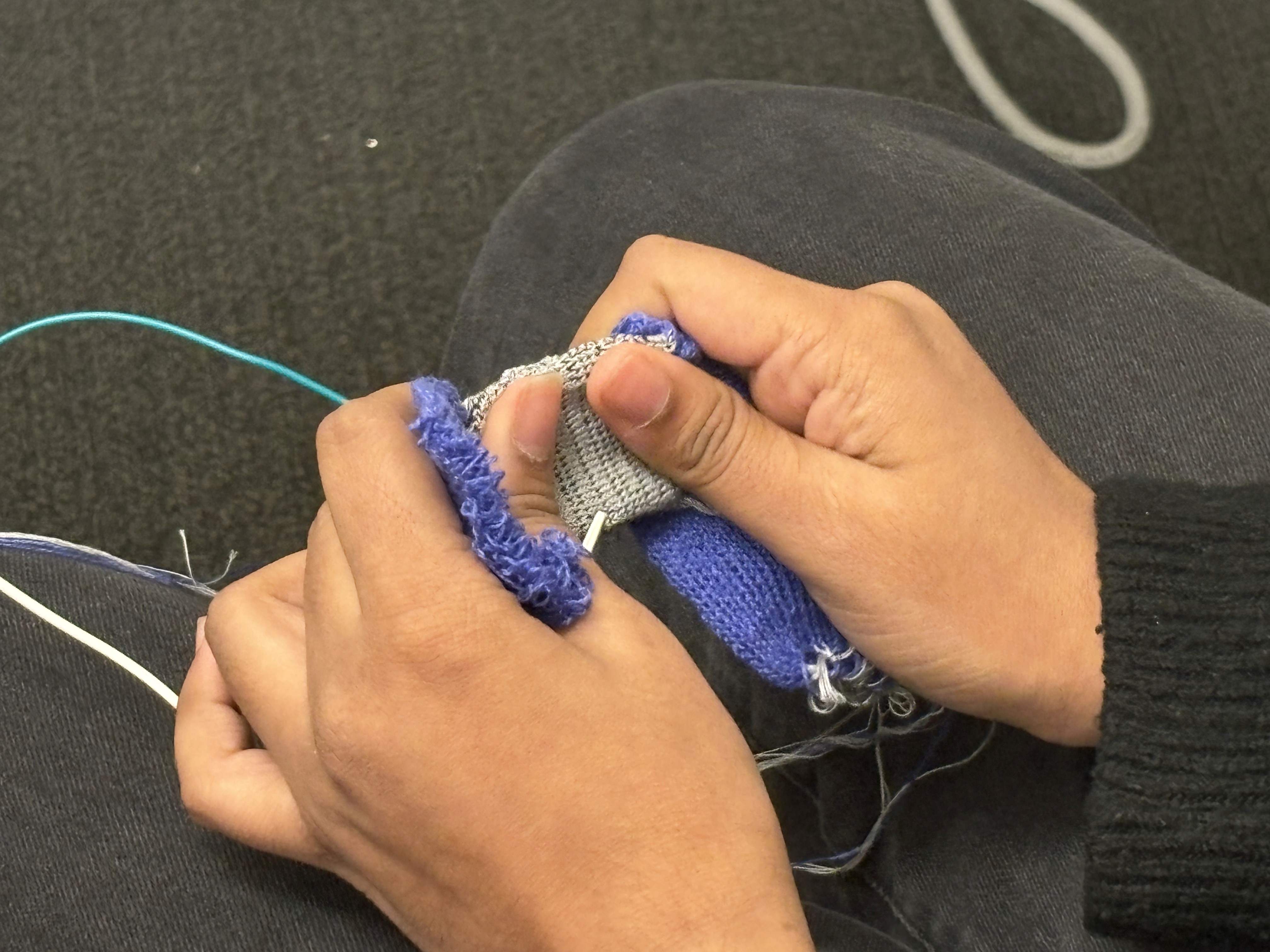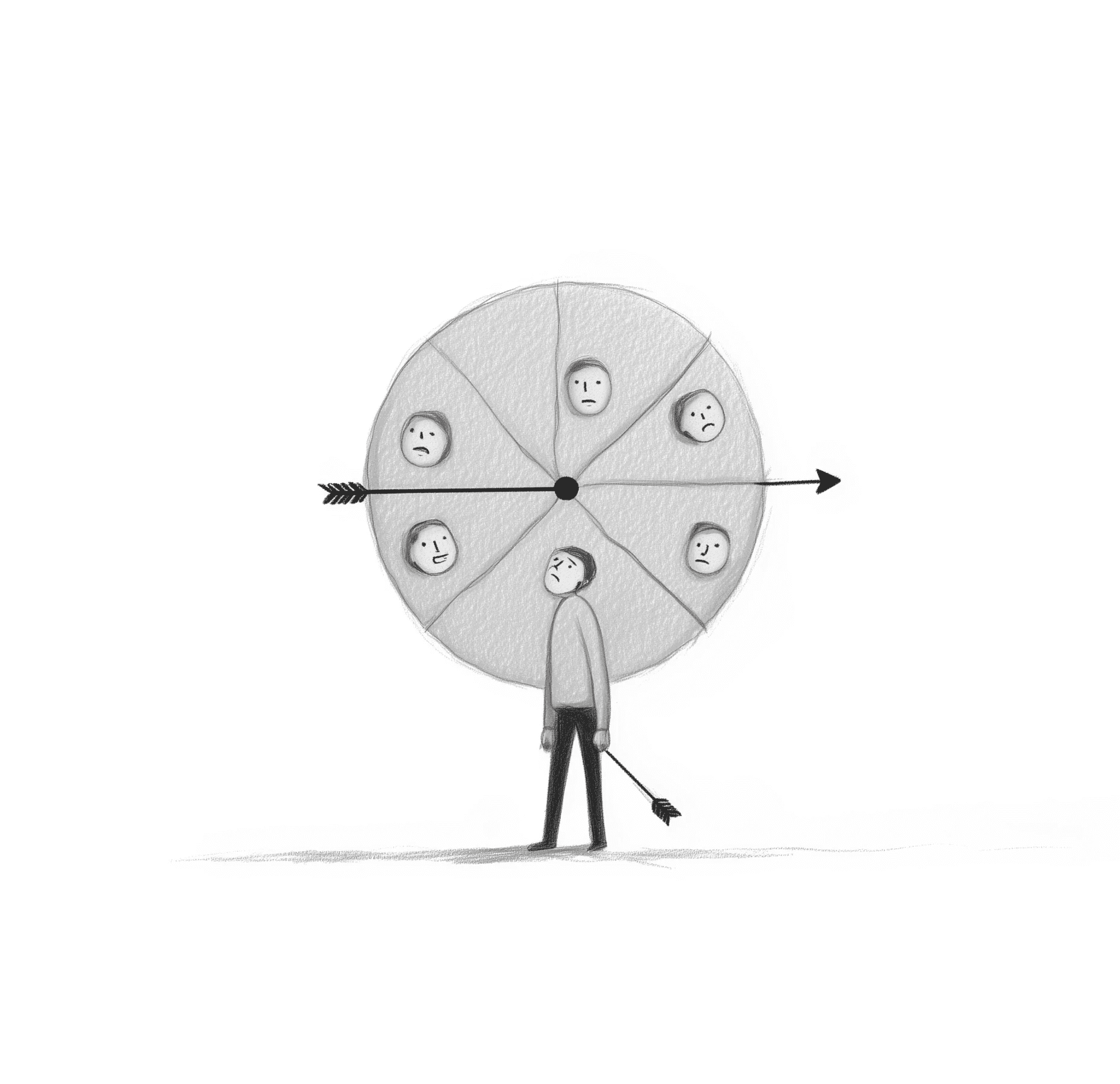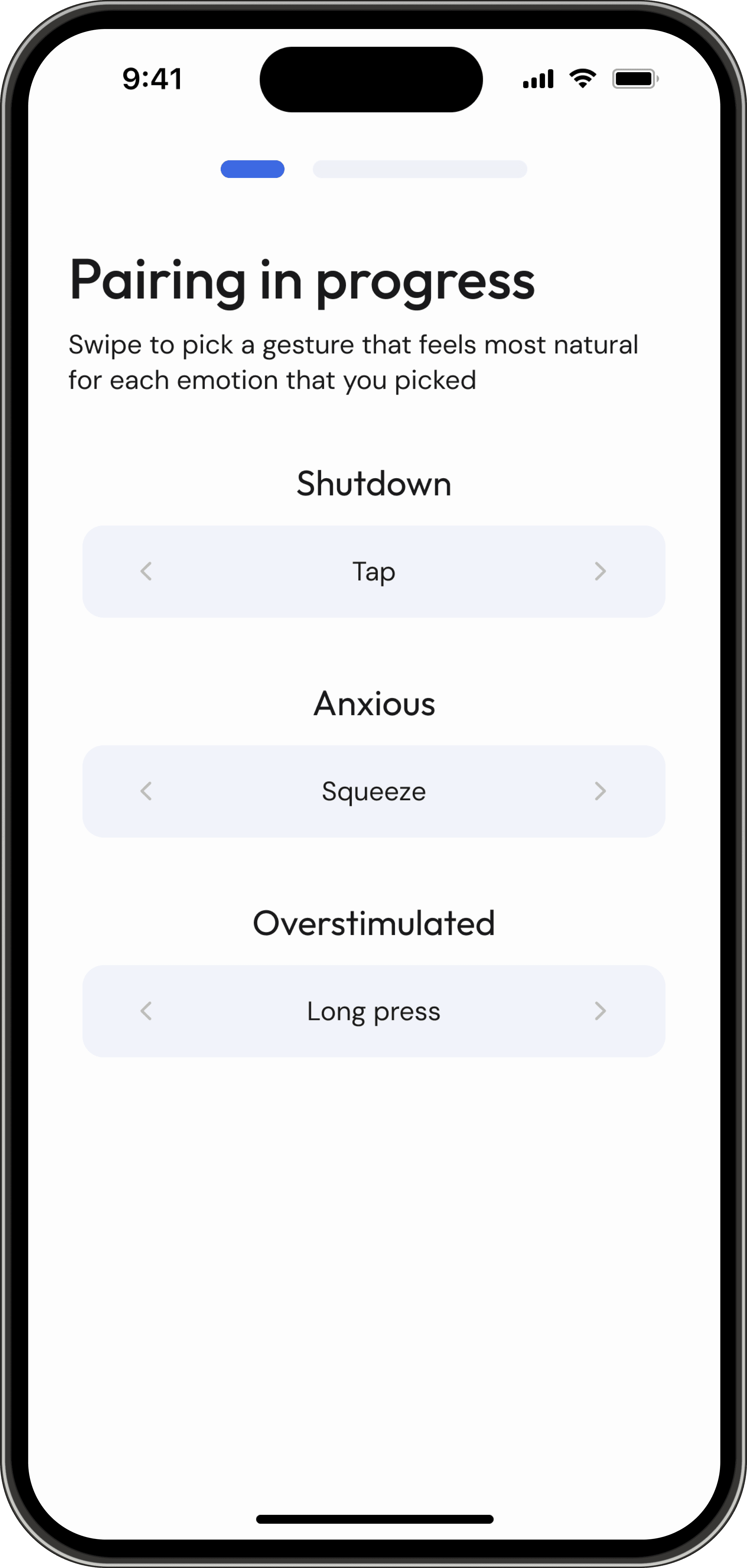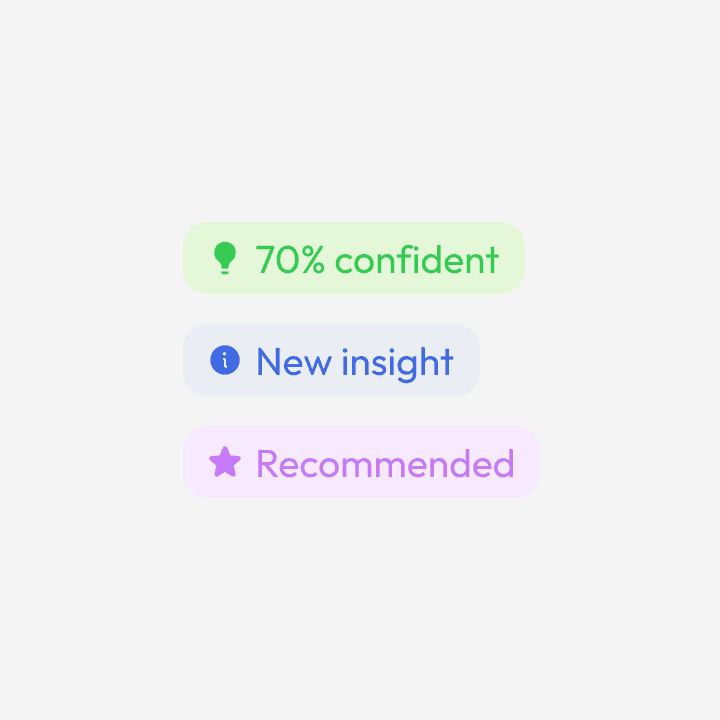Tacking the challenge of sensing emotions through wearables
Project overview & My role
Pilot testing wearable-AI assistance for emotion regulation
ITI Technologies is a healthcare startup focusing on building self-care and routine-building mobile solutions primarily for neurodivergent users. My team was tasked with the challenge to understand the capabilities of wearable (such as smart watch) to record and predict significant stress signals.
Conducted interviews with 10+ target users to understand stress patterns and current coping behaviors
Designed and iterated a wearable–mobile system that enables low-friction emotion logging through tap-based interaction
Led 3 rounds of pilot testing over 3 weeks to evaluate user engagement, usability, and device effectiveness
Key challenges
The client was heavily interested in wearable-related studies specifically on its potential to provide personalized insights and emotion recognition. In the early stage, the team spent many time filling in gaps through literature, talking to users in the community, and sketching user stories to explore various directions.
Primary user groups
ii. Pain points
Stress scenarios are both physical and psychological. One of the major challenges user experienced are catching early signs. As our survey with target users shows, 80% of the user found identifying early overwhelming signals the most difficult.
"I have a lot of trouble identifying emotions other than sad or overwhelmed."
"racing thoughts, sweating, panicking, stomach pains, looping memories over and over in my head"
2) Testing the feasibility of the concept
Although detecting emotions sounds promising with wearables equipped more advanced sensors, we found that the expectations for emotion-related apps aren't just about accuracy. It varies from wanting to get a clue about ambiguous feelings to building a resilient routine for moments feeling down.
Thus, I led synthesis sessions eventually helping the team to down the project to prioritize on the validity of building a user flow focus on three core parts: wearable, UX, algorithm to generate simple insights.
Problem statement
Current tools lack support to address neurodivergent users’ struggle with recognizing emotions and soothing.
Wellness market is divided in two distinct directions
Personal triggers, generic solutions.
Wellness industry fall into 2 major categories: smart wearables that track biometrics, and wellness apps that guide mindfulness. Both depend heavily on user evaluating their own physical and mental states, making these tools more like trackers than support systems.
User story #1
As an autistic user, I want a wearable made of familiar materials to avoid sensory overload.
User story #2
As a user with ADHD, I want a tool to recap scenarios and explain triggers to understand my feelings.
Features aren't as useful as actual soothing techniques.
While in our study users mentioned journals as the coping strategies, features like streaks or daily reflections rarely reduce the emotional load as proved by the high drop-off rate. Users still prefer using traditional soothing techniques such as grounding.
Our opportunity
How might we communicate early stress signs in a non-intrusive way?
Based on the 4 design objectives
With our client's unique position as a startup leading by a full neurodivergent team, we defined four design criteria to evaluate every feature we build.
More steps creates more friction
Users expressed interests in the quick tap action but were hesitant about using smart watches especially when they are in meetings and presentations.
User prefers a more subtle way to record.
Time-based journal creates emotional clutter where sometimes user prefer to have reflections as something optional. Emoji representation of emotion also feels limiting as user frequently mentioned the difficulty of recognizing emotions in the moment.
My contributions
A feedback loop supported by gestures and constant learning
01
User chooses what feelings they want to capture and pair it up with a gesture of their preferences
Instead of asking for full details about the meltdown, we ask users to share relevant signals and categorize them into emotion, physical, and environmental cues.
02
A usability update: optimizing gesture recognition with a soft wearable and a mobile app that supports in the background
It started with the question asked during user testing. "How do I log my thoughts in the middle of a meeting?" We explored different tactile methods, finally consolidating on a soft wearable where users pair gestures like a tap to an app to track feelings at the moment.
01
Tap now, view later: read relative data and analysis about tapped emotions anytime
User navigates between three tabs to view their entries, insights regarding their logs, and AI chats spaces to practice calming techniques.
01
Mood forecast: an AI-empowered review of logged emotions to provide actionable feedback
Based on the data received, the app utilizes AI to analyze and then suggest personalized regulation strategies. The suggestions aim to serve as gentle nudges rather than milestones for users to achieve.
The outcome
Increased likelihood to engage emotion logging
Both the user and the client expressed great interest in investing in a knitted wearable for capturing their emotions. The user tested the wearable and gave it an overall score of 4 out of 5 for its comfort, ease of use, and overall willingness to use.
>
snapshots from user testing

Press to log emotion: being sensory-friendly
"This method feels natural and unobtrusive. A simple press lets me log an emotion effortlessly without disrupting my daily activities."
The versatility of the proof-of-concept
"The data collected can be valuable for me to be aware of how I feel but also potentially be insighful to show to my therapists."













